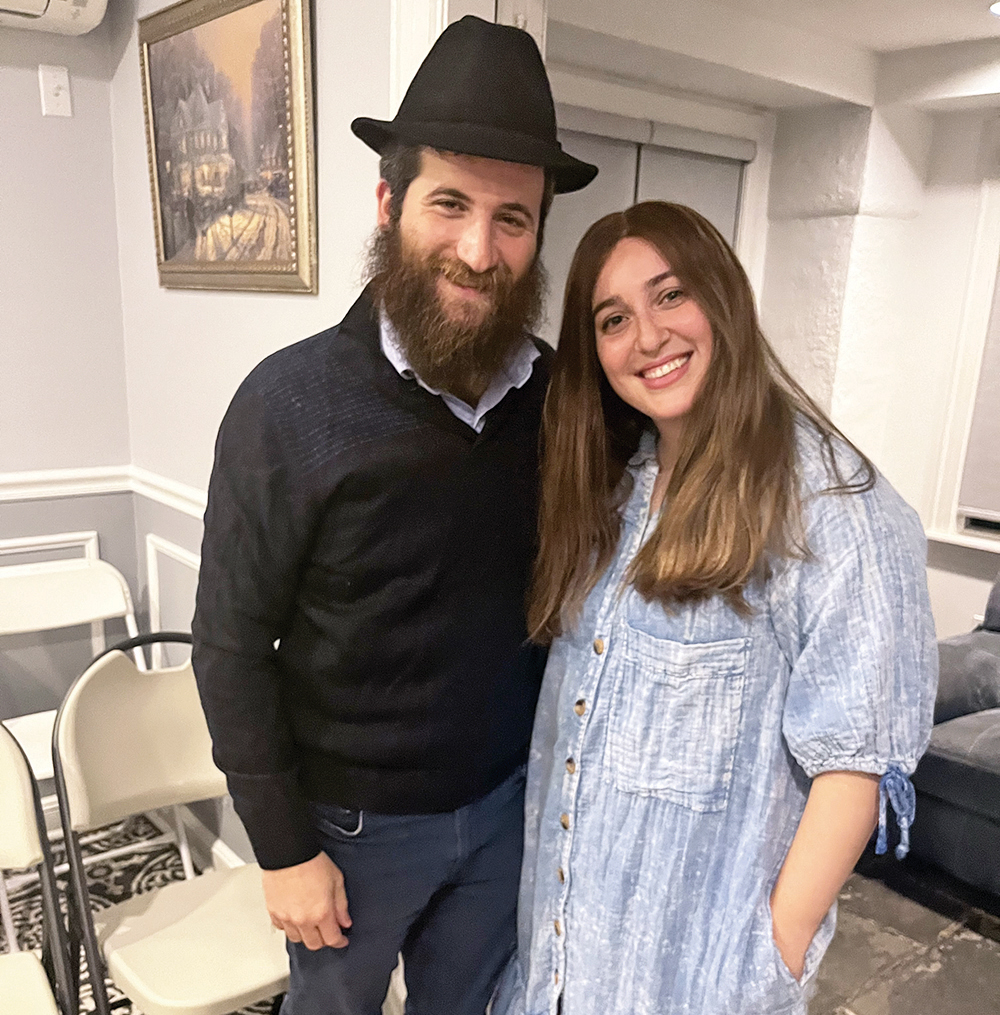
On Monday, Oct. 23, Rabbi Yuda and Rebbetzin Naomi Drizin, directors of Chabad at Columbia University, presented a conversation titled, “Countering Antisemitism of College Campuses” at the Kessler home in New Rochelle, New York. Students and parents learned about current challenges facing Jewish students on college campuses.
For many Jewish students, secular college is the first time they need to make Judaism their own because it’s not built into their day-to-day lives. It can be a challenge.
Naomi shared, “We’re very lucky that many secular colleges have strong Jewish communities. It’s beautiful to see students getting involved on their own initiative. Nonetheless, we encourage parents to connect with the leaders of the community and stay in touch.”
The Drizins explained that Jewish students are isolated right now. “The past two Shabbat dinners have been our largest, with over 250 students. Individuals who don’t usually attend Shabbat dinners came, looking for community and understanding.”
Yuda commented, “After the pro-Palestinian campus rally, many were traumatized and couldn’t believe what they saw. After the atrocity that happened on Oct. 7, it was devastating for students to see their own classmates and friends chanting ‘From the river to the sea.’”
Throughout the last two weeks, when students shared about antisemitic incidents or comments, the Drizins encourage them to report them to the administration.
Yuda noted that Columbia has a very large number of Israeli students. Since the war began, many Israeli students and lone soldiers have returned to Israel to serve. “The first Shabbat after the massacre, we weren’t sure how to go about celebrating. How do you gather, sing and dance a week after what happened?” questioned Yuda. “We dedicated Shabbat to the 10 regular Chabad participants who went back to Israel. We read messages of strength and encouragement from them. They are sorely missed and we’re davening for their safe return.”
Since the start of the war, the Drizins have put a table on campus almost every day with tefillin, Tehillim, a tzedaka box and Shabbat candles. They’ve been encouraging students to take on extra mitzvot in the merit of the safety of Jewish people in Israel and all over. On the first day with the table, one student walked by and offered to buy snacks and print brachot sheets.
“Everyone is really doing what they can and taking initiative. Some students are arranging rallies and posting educational content on social media. Others are fundraising for Magen David Adom. A few students spent days packing up trucks and sending supplies to Israel. Let your child find the way they feel comfortable and safe without pushing them in any direction.”
When asked what parents can do, the Drizins offered, “Check in with your child, now more than ever. Ask them how they’re doing, how their classes are, what they’re seeing on social media, etc. Having a strong connection brings a certain centeredness to a child and allows them to see that even if many at the university think they’re wrong, it doesn’t matter. Remind them that they should do their best with their schoolwork and it’s okay if their grades aren’t the greatest this semester. It’s hard to focus and their mental health comes first. Encourage them to surround themselves with friends or people who they feel supported by. They shouldn’t be isolated right now. Lastly, reach out to the school and to the Jewish leaders in your child’s community.
“Be positive, do what you can,” they concluded. “Be a supportive parent. Make sure they are plugged into a Jewish social life. There’s a need to be in a place where they don’t have to be defensive. We are here to help. Don’t hesitate to reach out.”
Judy Berger is The Jewish Link Bronx, Westchester and Connecticut community editor.









